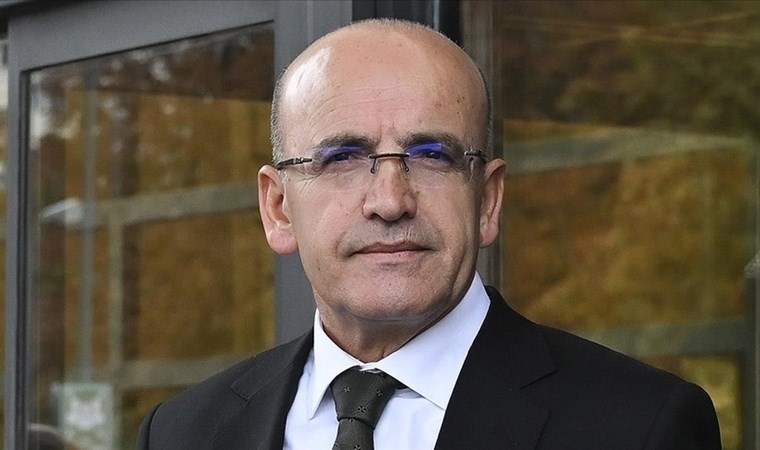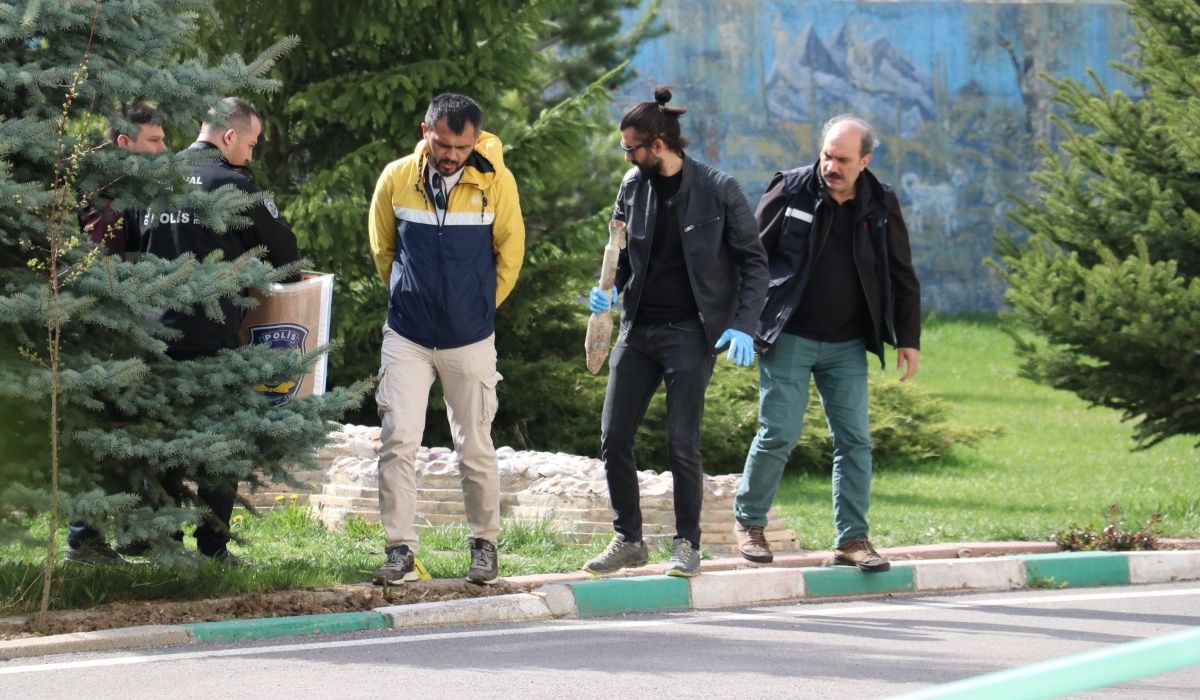Parents fight the legacy of 12 September
The struggle that parents have waged for years before the judiciary against the Religious Culture and Moral Knowledge lesson that was made constitutionally compulsory following the 12 September coup continues. The government, conversely, disregarding decisions of the courts, European Court of Human Rights, Constitutional Court and Council of State, is reconfiguring the lesson in a more sectarian m
Ozan Çepni
With the number of parents who wish to exempt their children from compulsory religion lessons growing day by day, court decisions rendered in various regions of Turkey lay bare the contradictions in the judiciary. The syllabus, not considered to be objective and pluralist in lawsuits in Istanbul and Antalya, has been deemed to be contemporary in Erzurum. Disregarding decisions of the courts, European Court of Human Rights, Constitutional Court and Council of State, the Ministry of National Education, which is reconfiguring the lesson in a sectarian manner, is proving incapable of unveiling the most recent form of the syllabus into which “jihad” has been added as a subject.
The debate that has continued for years in the corridors of national and domestic courts over the Religious Culture and Moral Knowledge lesson that was made constitutionally compulsory following the 12 September coup has assumed a new dimension thanks to the Ministry of National Education’s draft course syllabuses. Families are resorting to individual legal action in reaction to the course syllabus that, despite court decisions, is not being made objective. Families who have fought for the sake of their children and have met with different decisions have spoken to Cumhuriyet about their experiences and the ensuing duress:
COURT IN ANTALYA:
CANNOT BE APPLIED IN THIS MANNER
Tankut Sazlı, who made one of the first applications in Turkey following the European Court of Human Rights ruling, applied to the judiciary in 2014 after the application he made for his daughter to the Directorate of National Education was denied. Sazlı described the pre-court process as follows: “First we submitted a petition to the National Education for exemption from the lesson. We subsequently began to look into the process. The European Court of Human Rights had included a sentence in its decision relating to Alevism, ‘It is inappropriate for the syllabus in this form to be compulsory.’ This paved the way for the logic that if the syllabus is changed this problem will cease to exist. And we filed action as atheists, as non-believers in God.”
“Mark was zero”
Sazlı, indicating that they did not send their daughter to the religion lesson in the first term once they had brought legal action, said, “Since, at that time, a mosque prayer leader having no teacher training was giving the course, he asked questions like ‘What mark shall I give your friend?’ because he had no experience of class management. The kid’s mark was zero for the first term. She had an attendance issue. We were forced to send her for the second term while the court case was continuing.”
No mark for religion means no certificate of merit
Sazlı, describing how his daughter became demoralised over this process, said, “My child is a pupil who does not get marks of less than 98. With the mark for the religion lesson being zero, this prevented her from getting a certificate of merit. She was annoyed and demoralised. So, we sent her to the lesson to stop her getting upset. My kid’s classmates said some discriminatory things. But, we talked to our child at the very beginning about the possibility of such things. The other teachers also make the necessary reprimands when they see her classmates making discriminatory remarks, and just now there is no discriminatory behaviour.”
Unlawful
Contained in the decision of Antalya Administrative Court No 1, which is hearing the suit that Sazlı has brought, in which reference was made to the European Court of Human Rights ruling, is the wording, “It is clear that, although the name of the instruction given in primary and middle educational institutions is ‘religious culture and moral knowledge’, in terms of content it cannot be held to be ‘religious culture and moral knowledge’ education.” In this context, it is stated in the decision in which it is indicated that religious education is subject to the individual’s own desire or the family’s approval, “The making compulsory of the lesson with this content notwithstanding that the claimants, who assert that the religious culture and moral knowledge course taught in school does not conform to the family’s religious and philosophical beliefs, are not members of any religion or are atheists, is unlawful.”
Father transferred
Sazlı, noting that the sub-province where they live is a small place and they have experienced duress of various kinds, commented, “I am a teacher and they applied certain mobbing techniques against me in the National Education Directorate. I was transferred to my inconvenience to another sub-province about one month ago. Having won the lawsuit, we wrote a letter to the National Education calling attention to what had happened. We asked for rectification of her course marks and non-attendance, but the ministry has yet to make the necessary regulation. Despite the passage of one year since winning the case, a decision has yet to emerge from the Council of State.”
COURT IN ERZURUM:
CONTEMPORARY, PLURALIST AND OBJECTIVE
With the court in Antalya having ruled that religious education may only be given at a person’s request or with the family’s approval, another court in Erzurum ruled to the precise contrary one year later. The court dismissed the action that Associate Professor Dr. Candan Badem, a history department faculty member who was expelled from Munzur University, filed to exempt her daughter from religion lessons. Describing the course of the proceedings, Badem said, “My daughter was attending school. She would hear something from the religion teacher, then come home and I would say the opposite. It is fully a brainwashing activity. My child was exposed to such torment that she became psychologically disturbed.”
“The books are horrific”
Badem, going on as an academic to assess the course materials, said, “The content of the religion lesson books is horrific. Jihadism is praised. There is not a single picture of a woman or girl whose head is uncovered in the religion lesson book taught to my daughter in the sixth grade. The photographs of women and children have been taken from Malaysia. They have inserted photographs they have gathered on the internet.” As to what her daughter went through over this process, Badem has the following to say, “My kid, thinking that this lesson comes up in the Transition from Primary to Secondary Education Exam, took a pragmatic view. She thought it would be to her benefit not to argue with the religion lesson teacher.”
Erzurum Administrative Court No 2, which is hearing the action that Badem brought, disregarded European Court of Human Rights, Constitutional Court and Council of State decisions in the ruling it issued. The court, referring to the new syllabus that the Ministry of National Education has failed to divulge for a year, dismissed the application, saying with reference to the non-existent course syllabus, “The conclusion was reached that, through the alteration that has been made, religious culture and moral knowledge education that embraces a pluralist approach and is objective and rational is being implemented in our country.”
It will take three years
Badem, saying that she will not abandon the judicial fight, said, “There is a court in name but in Turkey courts have now ceased to be courts. Therefore, this affair will only end in the European Court of Human Rights. However, until it gets there and a decision is passed, my child will suffer this torment for at least three years.
Thousands up in arms
Badem, recounting how thousands of families in Tunceli are up in arms over compulsory religion lessons but are waiting in hopelessness, commented, “The AKP is using religion to make society stupid and engender a culture of submission. By giving orders to the courts, it wants to place as many obstacles as possible in the way of these exemption actions and leave claimants in the lurch for four or five years. Under these circumstances, nobody dares do it. Thousands of people in Dersim are uneasy about their children being given religion lessons but they do not file petitions, because there is a learnt hopelessness. With similar suits winning in Antalya and Istanbul, the reason I could not win this action was because it is Dersim. There are loads of Alevis here and they think that if I win there will be heaps of applications and so they drag things out.”
|
TEN YEARS OF STRUGGLE
European Court of Human Rights’ warning falls on deaf ears
Within the process of struggle against compulsory religion lessons in Turkey that started in the 2000s, the European Court of Human Rights, Constitutional Court, Council of State and local courts have taken decisions numerous times in favour of families. The European Court of Human Rights, adjudicating this matter for the first time in 2007, pointing to the wording in Article 24 of the Constitution, “Instruction in religious culture and morals shall be one of the compulsory lessons in the curricula of primary and secondary schools,” ruled, “The content and books of the lesson are not dealt with in an objective, critical and pluralist manner.” The European Court of Human Rights also gave the warning in its decision, “The exemption from religion lessons procedure may place families having different religious or philosophical beliefs under a heavy burden and forces them to reveal their religious or philosophical beliefs in order to exempt their children from religion lessons.”
Following the European Court of Human Rights and Constitutional Court rulings, the Council of State also amended its case law. The Council of State, pronouncing in a ruling it issued in 2008, “It must be determined if the syllabus is instruction in religious culture and morals or religious instruction. It is clear that in terms of content it cannot be held to be religious culture and moral knowledge,” ruled that its being compulsory was unlawful. The Council of State, declaring that the content of the religious culture and moral knowledge lesson did not fall within the scope of the compulsory instruction included in the Constitution, ruled in its judgment that pupils could be exempted under the clause, “Religious education and instruction shall be subject to the individual’s own desire, and in the case of minors, to the request of their legal representatives.”
The problem is structural
With no steps taken in Turkey despite the court rulings, the process ended back up at the European Court of Human Rights. The European Court of Human Rights noted in the ruling it passed in 2014, “In the absence of an appropriate exemption mechanism, the lesson pushes pupils from different sects into a conflict between their own values and their schools.” It was stressed in the ruling that the problem was structural. The court, indicating that the government had not solved the problem in the intervening period, warned, “Turkey must without further delay provide a remedy to the problem such as an exemption system that does not oblige families to reveal their religious and philosophical beliefs.”
Not objective in Istanbul, either
In the most recent case heard last week at Istanbul Administrative Court No 10, even if the Provincial Governate and Provincial Directorate of National Education made a “public policy” defence of compulsory religion lessons, the court decided, “It is necessary for this instruction to be given under a syllabus that accords with the purpose envisaged by the Constitution, for its content to be objective and pluralistic, for a person’s religion not to be used as a factor for discrimination or inequality and for the state to perceive all religious faiths as having equal value remaining impartial as against religions. It is clear that, if the syllabus applied in teaching is based on a specific religion, this cannot be conceded to be a ‘Religious Culture and Moral Knowledge’ course and will take the form of ‘religious instruction’.” The court, referring to European Court of Human Rights and Council of State decisions, ruled on the family’s application that the child may be exempted from the lesson.
Ministry of National Education gives more time to religion
The Ministry of National Education, instead of heeding the court rulings, has stepped up its endeavours to religify education. To this end, the ministry, not satisfied with the compulsory lesson, has given a religious focus to many lessons calling this “values education” and has increased the number of optional lessons with a religious orientation. It has also increased the weekly hours of the compulsory Religious Culture and Moral Knowledge course at high schools from one to two. |
|
They are unable to unveil the jihadist syllabus
The new Religious Culture and Moral knowledge course syllabus, which the Ministry of National Education states has been reconfigured in view of European Court of Human Rights rulings, which it has drawn up in consultation with the Ministry of Foreign Affairs, Ministry of Justice and the Ministry of Religious Affairs and which has been divulged in draft form following submission to the Cabinet, has not yet attained its final form. The syllabus, which has been divulged in draft form months after other lessons, features scandalous alterations to replace the sectarianism and explanations that are divorced from objectivity that earned criticism for the compulsory course. The ministry, which has removed all chapters devoted to Atatürk and Atatürk’s name from the syllabus of the lesson that is compulsory from fourth grade of primary school until the end of high school, has also devoted less space to matters of secularism. The Ministry of National Education has also added the subject of jihadism as a “basic act of piety in Islam” to the highly controversial draft syllabus. The ministry, which, out of necessity in line with European Court of Human Rights rulings, has increased coverage of subjects relating to Alevism in the new syllabus, has pronounced Alevism to be an “interpretation” and not a faith, and has still not been capable of referring to cemevis as places of worship. Even if it is announced that the ministry’s draft syllabus will not be ready for this year, The Education Board, which is considering criticism engendered by the draft, has not yet been able to unveil the final form of the Religious Culture and Moral Knowledge course despite the passage of months. |

En Çok Okunan Haberler
-
 Depremden bir saat önce '6-7.2 arası' diyerek uyarmıştı
Depremden bir saat önce '6-7.2 arası' diyerek uyarmıştı
-
 'Restoranlara gitmeyelim'
'Restoranlara gitmeyelim'
-
 ‘Yok artık öyle beleşten hayat’ dedi: Mirasını açıkladı!
‘Yok artık öyle beleşten hayat’ dedi: Mirasını açıkladı!
-
 'Yarı finale çıkma şansları yok'
'Yarı finale çıkma şansları yok'
-
 ‘B.kunu çıkardılar ama’
‘B.kunu çıkardılar ama’
-
 'Yüzbinlerce kişi tespit ettik'
'Yüzbinlerce kişi tespit ettik'
-
 Yatırımcılar dikkat! Gram altında yeni zirve
Yatırımcılar dikkat! Gram altında yeni zirve
-
 AFAD: 231 ihbar geldi
AFAD: 231 ihbar geldi
-
 CHP'nin yeni grup başkanvekili belli oldu!
CHP'nin yeni grup başkanvekili belli oldu!
-
 Cinsel açıdan en uyumlu 4 burç
Cinsel açıdan en uyumlu 4 burç

















